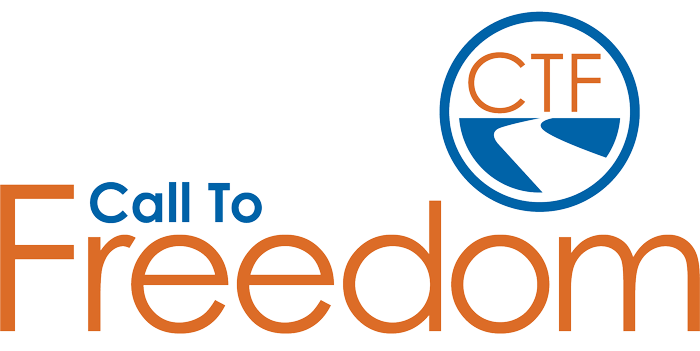Call to Freedom: Sturgis Rally
A biker’s dream but for some, that is not the case
From August 2-11, nearly half a million motorcyclists will descend upon the small South Dakota town of Sturgis. They come from all over the country and globe for the annual biker rally that turns 84 this year. It is a dream come true for any biker.
For some, however, the event is nothing short of a nightmare. These individuals, who are exploited and trafficked, are brought to every major gathering across the country—not for their own benefit, but to line the pockets of those who profit from their suffering. Human trafficking is the second largest criminal enterprise in the world, yet its scale and impact are likely not fully realized, as it’s a crime that’s particularly under identified and underreported. Many survivors may not identify as such for a variety of reasons, including lack of awareness about what constitutes trafficking; stigma and shame; dependence on their trafficker(s); fear of reprisal; and/or psychological factors including normalization of abuse, low self-esteem, and self-blame. Many of those who purchase sex don’t realize the person they are with is being trafficked, or that they might be the 20th person that he or she has been with so far that day.
Call to Freedom’s President & CEO Becky Rasmussen thinks about large-scale events like the Sturgis Rally and their impact on vulnerable populations. It is there that she met a young woman named Marissa in 2015. Marissa struggled to maintain eye contact and fearfully confided, “You have no idea what my day has been like.” She disappeared right after, never to be seen again. Ms. Rasmussen searched for Marissa but was unable to find her and was left with a stirring call to do more—to educate herself and others on what to do in cases of suspected trafficking and to build South Dakota’s premiere anti-trafficking organization. Shortly after that encounter, she founded the organization Call to Freedom to help human trafficking survivors like Marissa. The trauma-informed and faith-based nonprofit organization built its client centered services based upon survivors and their needs. The Continuum of Care model includes Marissa’s House, a specialized supportive housing site for adult survivors and their children, in honor of the young girl Ms. Rasmussen still searches for today. Call to Freedom offers comprehensive services including case management, addiction treatment, occupational therapy, spirituality coordination, education, counseling, employment help, and legal advocacy, among many others. The holistic Continuum of Care model is successful in meeting survivors’ needs through promoting healing and independence.
According to the International Labor Organization, human trafficking is a $150 billion criminal industry that affects as many as 24.9 million people globally.[1] And contrary to what many people believe, it happens right here at home in South Dakota. Environmental factors including increasing rates of poverty and homelessness, as well as large scale events and tourism opportunities including the Sturgis Rally and hunting season, all contribute to the state’s increasing rates of trafficking. South Dakota is home to nine tribal reservations, and the state’s American Indian/Alaska Native population is disproportionately impacted by violence and crime, including trafficking. According to the U.S. Attorney’s office, over 40% of those trafficked in South Dakota have been Native women, despite Native Americans constituting only 9% of our population.[2] Further, South Dakota interstates I-90 and I-29 make up the “Midwest Pipeline” that delivers human trafficking victims across the country.
What can you do if you suspect someone may be a victim of human trafficking? Bystanders are strongly encouraged to report suspected trafficking to the local authorities and the National Human Trafficking Hotline. Reports can be made via phone call to 888-373-7888 or by texting “INFO” to “BEFREE” (233733).
Call to Freedom encourages the public to watch for signs and vulnerabilities being exploited. According to the Polaris Project, vulnerabilities may include an unstable living situation, a history of domestic violence, histories of substance abuse, history as a runaway, being an undocumented immigrant, extreme poverty, and identifying as 2SLGTBQ+. If you encounter a situation where an individual appears to be unsafe, including that he/she may be a victim of trafficking, reporting the situation is critical, to protect those impacted and break cycles of abuse and exploitation. Call to Freedom notes that anyone can be a victim of human trafficking—there is no archetype. Reporting suspected trafficking is a vital step in eradicating the crime and connecting survivors with lifesaving care.
If you or someone you know needs Call to Freedom’s services, call or text 605-759-3565.
Call to Freedom staff are available 24/7.
References:
https://rally.forthechallenge.com
https://www.treasuredlives.org
https://polarisproject.org/vulnerabilities-and-recruitment/
[1] “ILO Says Forced Labour Generates Annual Profits of US$ 150 Billion | International Labour Organization,” May 20, 2014. https://www.ilo.org/resource/news/ilo-says-forced-labour-generates-annual-profits-us-150-billion.
[1] Hilleary, Cecily. “Sex Traffickers Target Native American Children in South Dakota.” VOA, March 20, 2021. https://www.voanews.com/a/usa_sex-traffickers-target-native-american-children-south-dakota/6203518.html.

